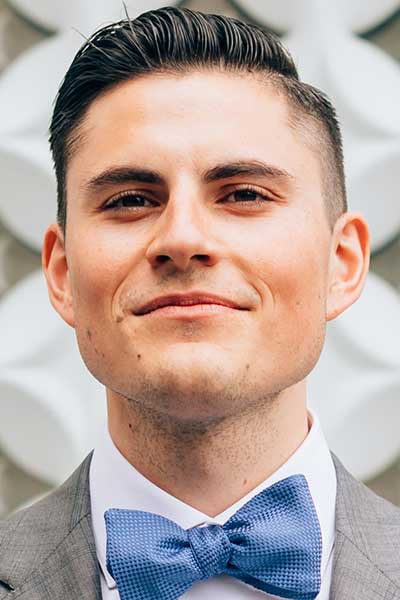
Poster Presenter: Mats Junek, MD, MSc, PhD(c), FRCPC, Clinical Scholar, McMaster University, Canada
Poster Title: Pulmonary Manifestations of Granulomatosis with Polyangiitis and Microscopic Polyangiitis
Poster Session A: 10:30 a.m.–12:30 p.m. on Sunday, October 26
What is your poster about?
“We assessed the pulmonary manifestations of individuals with granulomatosis with polyangiitis and microscopic polyangiitis — the two most common forms of anti-neutrophil cytoplasmic antibody (ANCA)-associated vasculitis — in the Vasculitis Clinical Research Consortium longitudinal databases. We found that over two-thirds of individuals with ANCA-associated vasculitis have pulmonary disease and that individuals can frequently have more than one pulmonary manifestation. We also saw that these manifestations are common at relapse and readily associated with permanent damage from vasculitis, indicating that close monitoring for these manifestations of ANCA-associated vasculitis is needed.”
Why did you decide to investigate this topic?
“ANCA-associated vasculitis is a heterogeneous disease for which we still need good quality, basic information concerning the epidemiology and natural history. By putting this knowledge together, we were able to highlight how central the lungs are to understanding this disease and its impact on patients’ lives, and drive future research.”
What are you working on next related to this research?
“The variety of pulmonary manifestations of ANCA-associated vasculitis likely highlights multiple different pathophysiological processes at work. We are seeking to better understand these different processes, how these processes affect individuals differently, and how this may potentially drive new treatment approaches in the disease space.”
What excites you most about your work?
“Individuals with vasculitis have extremely variable disease presentations and care needs. Figuring out how to address these needs and individualize care for the person in front of me is the most challenging, rewarding, and exciting part of my work.”
What are you most looking forward to at ACR Convergence 2025 in Chicago?
“Catching up with colleagues and seeing the most up-to-date research!”
There’s Still Time to Register for ACR Convergence 2025

If you haven’t registered for ACR Convergence 2025, register today to participate in this year’s premier rheumatology experience, October 24–29 in Chicago. All registered participants receive on-demand access to scientific sessions after the meeting through October 31, 2026.
